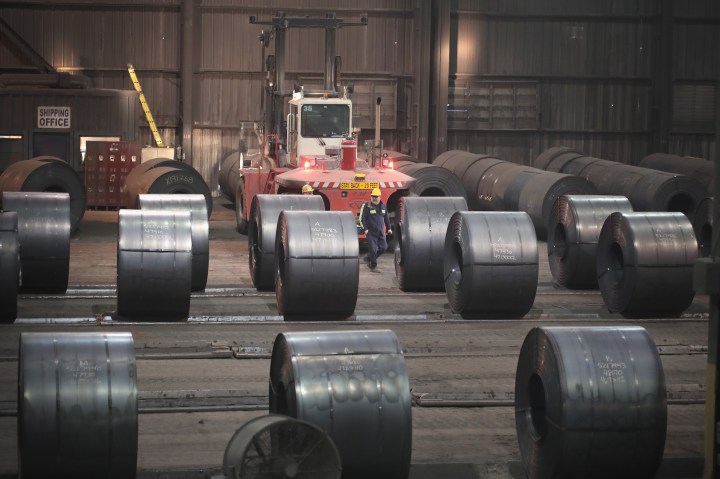
Ahead of a U.S.-China trade deal, uncertainty still dominates the steel business
Ahead of a U.S.-China trade deal, uncertainty still dominates the steel business

It’s been nearly two years since President Donald Trump imposed tariffs on imported Chinese steel and aluminum. Some businesses have been battling the effects of those tariffs every day since.
RM Metals in South Plainfield, New Jersey, a maker of stainless steel parts for appliances, is one of those on the front lines of the trade war. The 25% tariffs on steel have cut deeply into the business, which has had to restructure its supply chain. The company has filed tariff exemption requests, but those have met objections and denials. But Sam Desai, vice president of RM Metals, hopes that phase one of a U.S.-China trade agreement, to be signed this week, can boost domestic manufacturing after months of uncertainty.
“I hope it addresses our needs and pushes everyone else out there to grow the manufacturing sector,” Desai said.
He spoke with “Marketplace” host Kai Ryssdal about the trade deal and what it’s been like to run his business during the trade war.
Click the audio player above to hear the interview.
There’s a lot happening in the world. Through it all, Marketplace is here for you.
You rely on Marketplace to break down the world’s events and tell you how it affects you in a fact-based, approachable way. We rely on your financial support to keep making that possible.
Your donation today powers the independent journalism that you rely on. For just $5/month, you can help sustain Marketplace so we can keep reporting on the things that matter to you.












